2. When You Need to Stop IRS Levy Actions and Property Seizures Instantly. Bankruptcy stops the IRS from taking further action. The instant Chapter 7 or Chapter 13 bankruptcy is filed, the IRS is barred from initiating any collection.
3. When Bankruptcy Offers a Better Payment Plan. An IRS installment agreement may cost thousands of dollars more than Chapter 7 or Chapter 13. An installment agreement takes longer to complete than Chapter 7. Bankruptcy also takes the negotiating out of the equation. The IRS must take it or leave it.
4. When Bankruptcy Will Eliminate More Penalties. Chapter 13 can eliminate or reduce penalties because of the cram down provision. Chapter 7 can eliminate income tax, penalties, and interest completely.
5. When a Revenue Officer is Unreasonable. Bankruptcy gets the tax file to an IRS department specializing in taxpayer bankruptcies. If you can’t get what you want by negotiating with a revenue officer, the bankruptcy code may force the IRS to do what you want, whether they like it or not.
6. When an Audit Needs to be Stopped. Filing bankruptcy may stop an audit. I’ve witnessed situations where my client is being audited, or is about to be audited, and filing bankruptcy terminates the process. Most taxpayers worry needlessly about audits. The audit process can be controlled, and a tax lawyer can speak on your behalf.
7. When You Need to Leverage a Better Settlement Deal With the IRS. The Internal Revenue Manual permits the IRS to consider what the government would receive from an offer in compromise versus what they would get if bankruptcy were filed. A clever tax lawyer will submit unfiled bankruptcy schedules to the IRS so that the offer in compromise looks more attractive to the IRS than bankruptcy.
8. When You Don’t Like the IRS’s Offer to Settle. Occasionally the IRS won’t see it the same way we see it when it comes to determining a reasonable offer to settle. In those cases, my client and I may decide to appeal, or we may decide to say “enough is enough” and go into bankruptcy court and force the issue – and there is nothing the IRS can do about it.
9. When You Need to Resolve More than One Debt Problem. Bankruptcy can resolve many financial problems at the same time! Tax, foreclosure, car loans, credit card debt, medical bills, and business debt can all be resolved in one bankruptcy filing.
10. When Uncollectible Status May Expire. I’ve had clients who I’ve been able to get into uncollectible (“hardship”) status and yet we know in the future their income is going to increase dramatically and hardship status may be rescinded by the IRS. In some of those cases, we make the decision to file bankruptcy now, and wipe out the tax debt, rather than have to hassle with the IRS later.
Get a Free Tax Analysis that Considers All Tax Solutions
The best way to eliminate your tax liability can only be determined after a full evaluation of the facts and circumstances of your particular case. Bankruptcy is just one solution of a number of solutions. If you desire to know specifically how you can become free of tax and other debt, give us a call!
Call us toll free anytime at 800 659 0525 or 414 771 9200. We can help.

